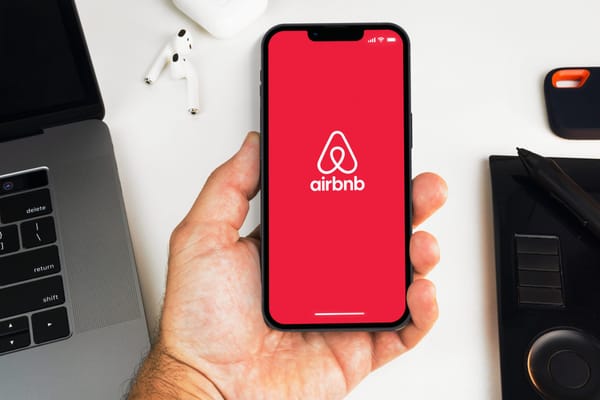Starting a Vacation Rental Business: A Complete Manual

Starting a vacation rental business is an exciting prospect with benefits like more income and flexible work hours. Although the COVID-19 pandemic affected the demand for short-term rentals in 2020, it is predicted to rebound already in the second quarter of 2021, and its revenue is projected to grow by 37.6% in comparison to 2020. So, if you are thinking about becoming an Airbnb entrepreneur, it is a good time to start.
That said, a vacation rental business does have its fair share of challenges. Airbnb hosts who are not prepared, or haven’t done their research, could find themselves overwhelmed when attempting to manage a rental property.
Read on to discover how to launch your own short-term rental business, and what you need to do to make it a success.

What Is a Vacation Rental Business?
A vacation rental business is a business that offers short-term rental property for hire. This can either be for a short-term vacation or a longer stay. The business can consist of one investment property or multiple properties.
They can either be rented out entirely or sublet (if the owner allows for this). A vacation rental business owner is often a full-time host who is also a homeowner of the property. They can be also a part-time host who runs their business as a side hustle for a second income.
Is a Vacation Rental Business Profitable?
One of the most common questions that future hosts ask is whether they can actually make a profit from starting a vacation rental business. On average, hosts earn around $924 a month from their Airbnb businesses.
This can vary depending on how many properties a host rents out, as well as on occupancy rate and expenses involved. So, is a vacation rental business profitable? The answer is a definite yes, provided you plan and use strategies to maximize your rental income.
What Do I Need to Start a Vacation Rental Business?
-
All legal documentation and licenses
Before planning your vacation rental business, consider vacation rental industry regulations. The laws and regulations that govern short-term renting vary by state and city.
First, find out if short-term rentals are legal in your city. You can then research what zoning laws apply to your vacation rental property’s location. Once you have the green light to operate, you will need to apply for the relevant licensing to practice as a business. This could include a general business license as well as a short-term rental license.
If you’re unsure about what licenses you need or where to get them, you can work with a property lawyer. You will also need to find out what taxes you will need to pay for running your vacation rental business.
-
A detailed business plan
If you want your business to succeed, take the time to draw up a vacation rental business plan. A well-crafted business plan is the sail of your ship. It can help you identify the strengths, shortcomings, and risks of your business.
Start by identifying the goals of your business in terms of scale and revenue. What targets do you want to hit, and by when? Remember to be realistic with setting dates, as success doesn’t happen overnight. List your business assets to assess your current limits and future potential.
Move on to identify the unique selling points (USPs) of your business. Think about what your rental has that your competitors are lacking. Other things you can include are a financial strategy and an operations management strategy.
-
A property management strategy
You will need to consider how you are going to manage and oversee your rental properties. A good idea is to jot down questions related to property management and answer them, one by one. Through this, your management strategy will begin to take shape. These can be the following questions:
- How much time will you give to property management?
- How will you handle messages and requests sent outside of your work hours?
- Will you manage the properties yourself or hire a manager?
- What tools will you use for effective property management?
-
A pricing strategy
A detailed business plan won’t go far without a thorough pricing strategy. You should estimate your maximum revenue and compare it against your monthly expenses. Remember to take into account seasonality, competition, any management fees, and cleaning costs. From there, you can determine your profitability and set an accurate nightly rate.
Strategies to maximize rental income include offering seasonal specials and weekday discounts. Another strategy is to offer long-term rentals to renters when it’s not your peak season.
Where Should I Base My Airbnb Business?
You should aim to base your Airbnb business in areas that receive moderate to high tourist traffic. Due to COVID-19, there has been an increase in demand for remote rentals. Despite this, urban rentals are becoming popular again.
Thanks to technology, vacation rental owners can base themselves anywhere in the world. Remote management has become very popular in recent years. Many guests prefer to opt for vacation rentals with remote, contactless services.

How to Make Money Running a Short-term Rental Business?
1. Make your rental stand out
-
Keep your target guest in mind
Remember that you are trying to attract a certain type of guest. Don’t try to catch the attention of every guest out there. If you do that, you may end up attracting no guests at all. Decide on who your rental best caters to (business travelers, families, backpackers, etc.) and aim to entice those guests to book with you. You can do this through styling and decor, amenities on offer, and specials deals.
-
Invest in a solid design and durable furniture
Your Airbnb furniture should have a consistent theme and style that’s easy to identify. Try to place a signature piece in each room that will act as a focal point and give a sense of balance. Feel free to play with colors, but don’t go overboard and create unpleasant clashes. If you’re not feeling confident, you can work with a professional interior designer who can advise you.
-
Provide unique amenities on top of the basics
On top of basic amenities, you should aim to provide something special that helps your rental stand out from others. Perhaps your rental offers stunning vistas, or a pool or hot tub for relaxing in? Or maybe its location and proximity to other attractions is a big selling point? Whatever it may be, make sure you highlight it in your Airbnb listing title and description.
-
Create a perfect listing on booking sites
Your rental listing is what’s going to draw potential guests to your rental, so invest some time in making it perfect. Your property description should be informative but also enticing. Don’t just list what your rental offers but describe the kind of experience guests will have there. Include a title that either mentions a unique amenity or a special offer to encourage guests to click and find out more.
2. Advertise your rentals
To remain competitive, you should list your rental properties on the top rental sites which include Airbnb, Vrbo, and Booking.com. You can also create listings on alternative platforms like Expedia and Tripadvisor. This allows you to reach as many people as possible, increasing your chances of getting booked.
You should also market your rental on social media platforms for maximum exposure. Visual platforms like Instagram and Pinterest are best for showcasing your rental. Another marketing strategy includes partnering with local businesses to offer deals and promotions.
3. Work on your Airbnb ranking
Guests want quick and convenient solutions and are more likely to book listings higher in search results. One of the most effective ways to encourage excellent occupancy rates is to ensure your listing is shown on the first landing page of a listing site.
You can do this by keeping a speedy response rate, obtaining good reviews from guests, and keeping your listing up to date. Other tactics to boost your Airbnb ranking are turning on Instant Book and choosing a flexible cancellation policy.

What Is the Best Way to Run Your Vacation Rental Business?
There are a variety of options when it comes to choosing the best way to manage your vacation rental business.
1. Self-management
If you have the time and the know-how, managing your own vacation rental business can be a rewarding experience. You can also save on the fees you would otherwise be paying to a property manager or vacation rental management business service. Self-management gives you greater control over how your daily operations are managed. However, it can become time-consuming, especially when you manage more than one rental.
2. Hiring a property manager or a property management company
Hiring a property manager or a property management company takes the pressure off of handling the business yourself. If you already work another job or don’t have the expertise to manage your rentals, then hiring external help is the optimal solution. Although you’ll be paying a property management fee, you can rest assured that your properties will be in expert hands.
3. Using vacation rental software
A third option is to manage your rental business using vacation rental software. If you don’t have the time to self-manage your rentals but don’t want to hire external help, this is the perfect option. Vacation rental software, such as iGMS, uses automation functionality, allowing you to focus on growth and scaling. Using automation, iGMS will take care of:
- Managing all listings from the top OTAs such Airbnb, Vrbo, and Booking.com.
- Importing reservations from other listing sites via iCal.
- Organizing all guest messages into a single feed within a unified inbox.
- Creating message templates and automating your messages.
- Creating guest review templates and automating review send-outs.
- Creating and assigning tasks to your cleaning teams that you can track in real-time.
- Managing direct bookings coming from your business website and other platforms.
- Processing online payments via integration with Stripe.
- Tracking business and payouts with financial reporting tools.
About the Author
Phoebe Gunning is a content writer in the Marketing Department at iGMS. She is passionate about the vacation rental industry, notably helping hosts make the most out of their vacation rental businesses. Some of her hobbies include reading, traveling and drinking a good cup of coffee.







